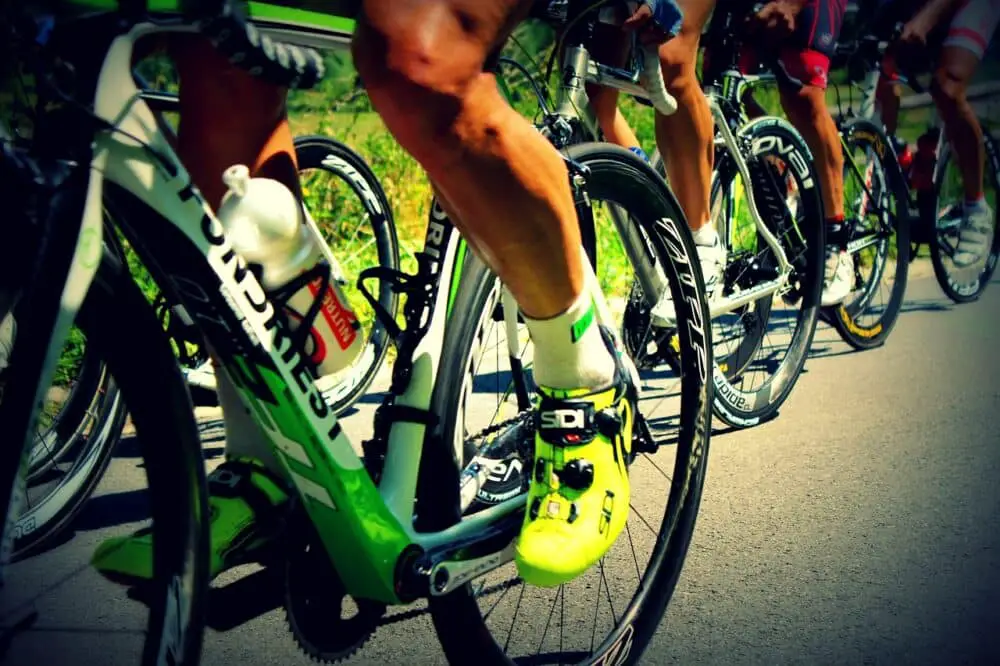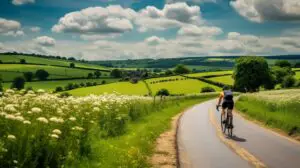Cycling is a terrific way to get some exercise. It is low impact, which is gentle on the joints, and a fantastic way to get in some cardio.
However, if you want to make the most out of your cycling routine, it’s important to fuel your body properly.
Some of the simplest techniques to maximize the effectiveness of your cycling nutrition are to eat frequently and to eat a variety of foods.
Additionally, it’s essential to aim for eating something every two to three hours and make sure that each meal contains a mix of carbohydrates, proteins, and fats.
To help you get started, here is a complete guide to the perfect cycling nutrition.
Principles of Cycling Nutrition to Consider
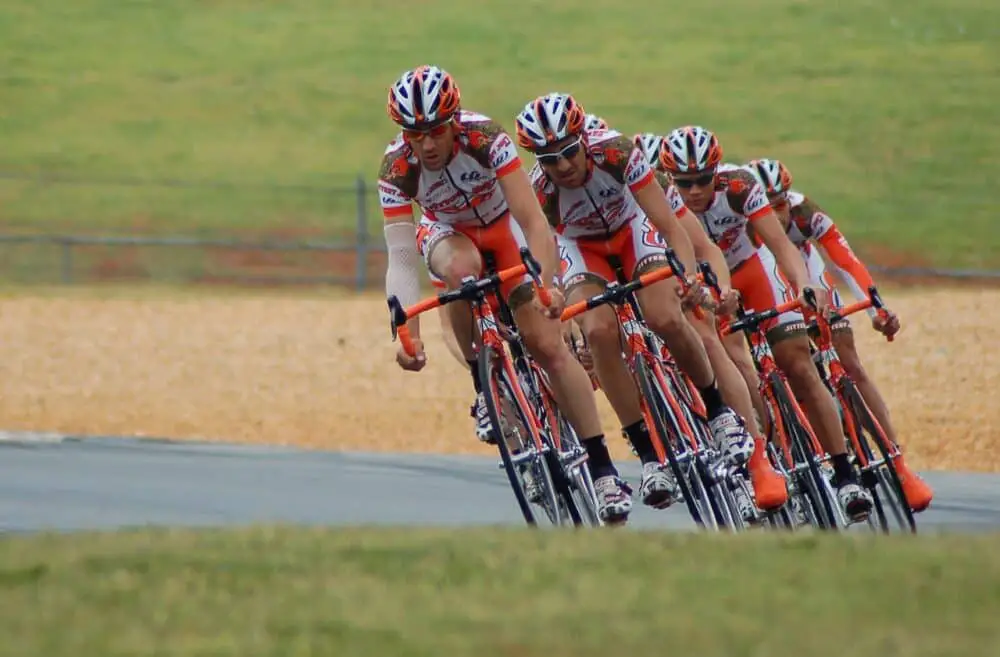
One size does not fit all when it comes to cycling nutrition and hydration. However, there are certain important guidelines that cyclists can utilize as a foundation.
Let’s take a look at some of the key principles of cycling nutrition.
Carbohydrate Intake Strengthens High Intensity
Cycling depletes your body of glycogen, so it’s important to replenish those carbohydrate stores by eating carbohydrates.
Your muscle glycogen stores can be used for energy during high-intensity efforts, such as sprinting or hill climbing.
To ensure that your body has enough glycogen, it’s important to eat a high-carbohydrate diet in the days leading up to a race or event.
For long rides, such as multi-day stage races, you may need to consume additional carbohydrates during the event to keep your energy levels up.
Additionally, a high carbohydrate diet is perfect for short-duration, high-intensity exercise like cycling training. Good sources of carbs include rice, pasta, bread, cereal, fruits, and vegetables.
Research has shown that consuming carbohydrates before a training session and during exercise can help improve performance.
Protein Aids in Muscle Recovery
In addition to carbohydrates, protein is also important for cyclists. Protein helps repair and build muscle, which is essential for recovery after a ride.
Good sources of protein include lean meats, tofu, beans, nuts, and dairy. Additionally, many athletes prefer to use protein supplements in the form of shakes or bars.
Fat for Energy
While fat is often vilified, it’s actually an important part of a cyclist’s diet. Fat provides energy and helps the body absorb vitamins.
Good sources of fat include avocados, olive oil, nuts, and seeds. Just like with carbohydrates and protein, it’s important to consume a mix of different fats to get the most benefit.
However, saturated fats should be limited as they can lead to heart disease. Therefore, it’s best to focus on consuming unsaturated fats.
Fiber for Digestion
Fiber is an important part of a cyclist’s diet for two reasons. First, fiber helps with digestion. Second, fiber can help reduce the risk of gastrointestinal issues during rides.
Good sources of fiber include fruits, vegetables, and whole grains. Consider supplementing your diet with a fiber supplement if you’re struggling to get enough from food alone.
Antioxidants for Immune Health
Antioxidants are important for cyclists because they help reduce inflammation and can support immune health.
Good sources of antioxidants include berries, dark chocolate, and green tea. You can also take antioxidant supplements, such as vitamin C or vitamin E.
Vitamins and Minerals for Overall Health
In addition to the macronutrients mentioned above, cyclists also need to make sure they’re getting enough vitamins and minerals. These nutrients are essential for overall health and well-being.
Some of the most important vitamins and minerals for cyclists include iron, calcium, magnesium, and vitamin D. These nutrients can be found in a variety of foods, such as leafy green vegetables, fruits, nuts, and dairy.
Hydration is Essential
Proper hydration is essential for all athletes, but it’s especially important for cyclists. Cycling is an endurance activity, which means that it puts a lot of stress on the body.
To stay properly hydrated, it’s crucial to drink plenty of fluids throughout the day and during your bike rides. Water is the best option for hydration, however, sports drinks can also be beneficial as they contain electrolytes, which help replace those lost through sweat.
Foods to Eat
There are certain foods that can help you perform your best on the bike. These foods provide energy, electrolytes, and nutrients that can help you ride longer and stronger. Some of the best foods for cyclists include:
Complex Carbohydrates
Complex carbohydrates are a great source of energy for cyclists. They’re slowly absorbed, which means they provide a steadier stream of energy. Good sources of complex carbohydrates include whole grains, oats, quinoa, and sweet potatoes.
Fruits and Vegetables
Fruits and vegetables are rich in vitamins, minerals, and antioxidants. They can help to boost your immune system and help your body recover from exercise.
Protein
Protein is essential for muscle recovery. Good sources of protein include meats, poultry, fish, tofu, legumes, and dairy products.
Healthy Fats
Healthy fats are a great source of energy for cyclists. They help to slow down the absorption of carbohydrates, which provides a steadier stream of energy.
Good sources of healthy fats include nuts, seeds, avocados, and olive oil.
Water
Water is the best option for hydration, but sports drinks can also be beneficial. Sports drinks contain electrolytes, which help replace those lost through sweat.
Energy Bars
Energy bars are a convenient way to get some extra calories and nutrients. Look for bars that are high in carbs and low in fat and sugar.
Carbohydrate Drink
Carbohydrate drinks are a convenient way to get some extra calories and nutrients. Look for drinks that are high in carbs and low in fat and sugar.
You can also make your own carbohydrate drink by mixing a high-quality carbohydrate powder with water. This is a great option for rides that are longer than two hours.
Food Items to Avoid
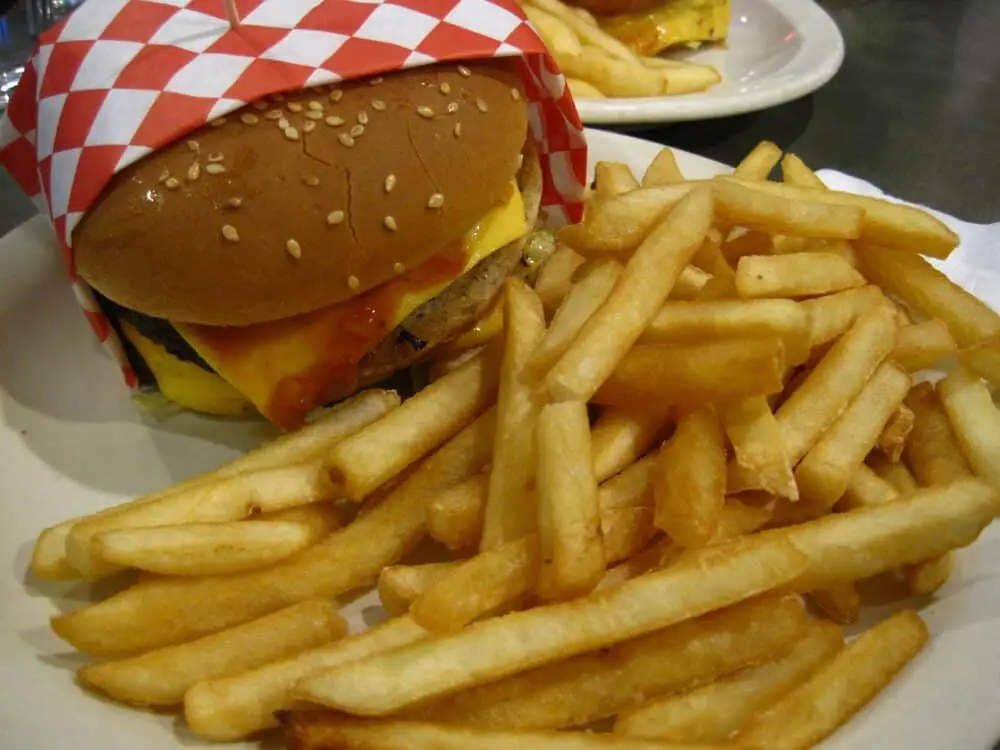
There are certain foods that you should avoid before and during a ride. These foods can cause digestive issues or make you feel sluggish. Some of the foods to avoid include:
Processed Foods
Foods that are high in sugar, fat, and salt can cause digestive issues and make you feel sluggish. These foods can also lead to weight gain, so it’s best to avoid them.
High-Fiber Foods
Foods that are high in fiber can cause gastrointestinal issues, such as bloating and cramping. It’s best to avoid these foods before and during a ride.
Greasy Foods
Greasy foods can cause stomach problems, such as indigestion and heartburn. They can also make you feel sluggish, so it’s best to avoid them before cycling.
Caffeine
While caffeine can improve performance, it can also lead to dehydration. It’s best to avoid caffeine before and during a ride.
Alcohol
Alcohol is a diuretic, which means it can cause dehydration. It can also make you feel sluggish and impair your judgment. For these reasons, it’s best to avoid alcohol before and during a ride.
Cycling Nutrition And Body Weight
Whether your goal is to lose weight, gain weight, or maintain your current weight, cycling can help. You can create a calorie deficit by cycling, which will help you with weight loss.
Also, cycling can help improve your body composition by increasing muscle mass and reducing body fat. If you’re looking to gain weight, cycling can also help you by increasing your appetite.
To Lose Weight
A proper cycling diet plan for weight loss is all about creating a calorie deficit. You can do this by eating fewer calories, burning more calories through exercise, or both.
When trying to lose weight, it’s important to focus on healthy foods. Consider aiming to eat mostly fruits, vegetables, lean protein, and whole grains.
Having a calorie deficit will help you lose weight. Cycling and cutting back on calories are simple ways to achieve this. Losing weight takes time and patience, but it’s important to stay motivated.
To Gain Weight
In order to gain weight, it is crucial to consume more calories than you expend. By cycling and consuming more calories, you can easily do it.
However, make sure that the calories you consume are coming from healthy foods. Healthy foods that can help you gain weight include lean protein, complex carbs, and healthy fats.
To Maintain Weight
Consider consuming the same number of calories as you expend in order to maintain your weight. This can aid in preventing weight gain or weight loss.
Consider eating more calories without gaining weight if you cycle, which can help you maintain your current weight.
Cycling nutrition is important for all cyclists, regardless of their goals. By following a healthy diet and staying hydrated, you can improve your performance and reach your goals.
Tips for Improving Your Cycling Nutrition
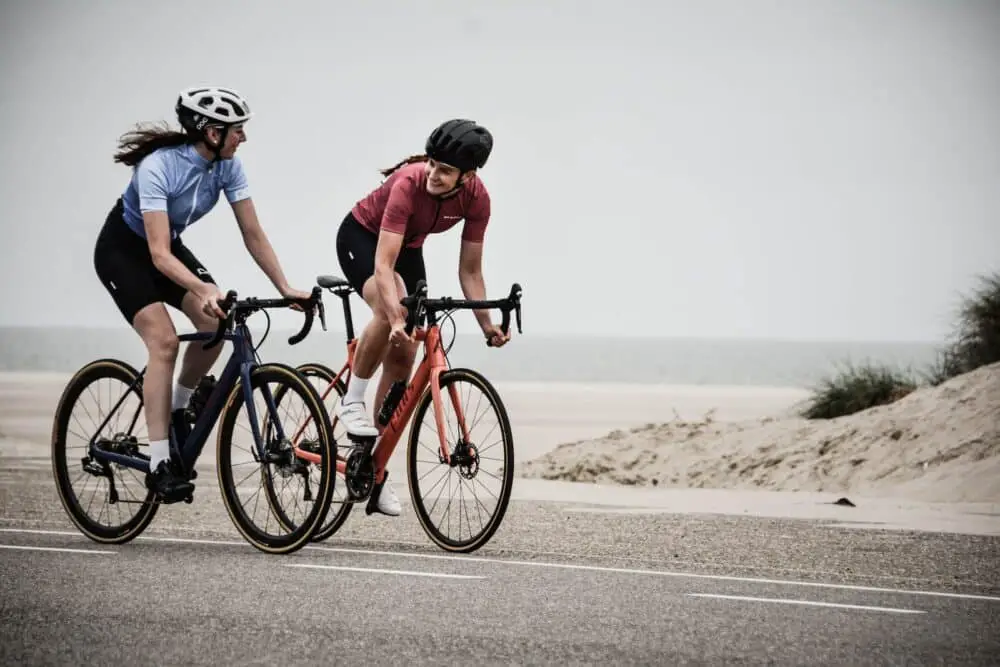
In addition to following the general principles of cycling nutrition, there are also some specific things you can do to make sure you’re getting the most out of your diet.
Here are a few tips to get you started.
- Eat a nutritious breakfast before you cycle. This will give you the energy you need to ride at a high intensity.
- Carry snacks with you so you can eat something every few hours. Good choices include energy bars, fruit, nuts, and sandwiches.
- Drink plenty of fluids, especially during and after your ride. Water is the best choice, but you can also drink sports drinks to replenish electrolytes.
- Avoid processed foods and sugary snacks, as they will only give you a short-term energy boost followed by a crash.
- Make sure you’re getting enough protein by including it at every meal. aim for about 0.5 grams per pound of body weight.
Following these tips will help you to make the most out of your cycling nutrition and improve your performance on the bike.
Ideas for Calorie Source
It’s better to consume solid foods rather than liquids when cycling, as they tend to be more filling and satisfying.
- A good breakfast can be oatmeal with berries and almond milk or scrambled eggs with toast. Also, you can make a sandwich with peanut butter and jelly or turkey and cheese.
- For snacks, energy bars, trail mix, and fruit are all good choices. Consider them to have a few hundred calories each so you don’t overdo it.
- For a mid-ride snack, try an energy bar or a banana. You can also carry a sandwich or wrap with you for a post-ride meal.
- For dinner, grilled chicken or fish with vegetables is a good option. You can also get your calories from shakes or smoothies, but make sure they’re high in nutrients and low in sugar.
- Finally, for post-ride recovery, chocolate milk or a protein shake are both excellent options.
Prioritizing quality above quantity when it comes to cycling nutrition is crucial. You will perform better and accomplish your goals if you consume nutritious, whole foods.
In simple words, consider aiming to eat every few hours to keep your energy levels up.
Conclusion
Cycling nutrition is important for all cyclists, from beginners to professionals. By following the guidelines above, you can make sure that you’re getting the most out of your training rides and recovery.
Eating frequently and consuming a variety of foods is crucial to effective cycling nutrition. In addition, it’s important to consume carbohydrates, fats, and protein-rich foods in order to fuel your body properly.
Finally, don’t forget to stay hydrated by drinking plenty of fluids throughout the day. By following these guidelines, you can make sure that you’re getting the most out of your cycling routine.
Happy riding!
References:
Cycling Nutrition, Food & Diet: The Complete Guide. (2022). Retrieved 21 September 2022, from https://veloforte.com/blogs/fuel-better/cycling-nutrition-101-fuelling-on-off-the-bike
Rutberg, J. (2022). Cycling Nutrition: Illustrated Guide to Eating and Drinking on the Bike. Retrieved 21 September 2022, from https://trainright.com/cycling-nutrition-guide-eating-drinking-on-bike/
Rutberg, J. (2022). Cycling Nutrition: What to Eat and Drink During Bike Rides of Any Length. Retrieved 21 September 2022, from https://trainright.com/what-to-eat-and-drink-during-bike-rides-of-any-length/
